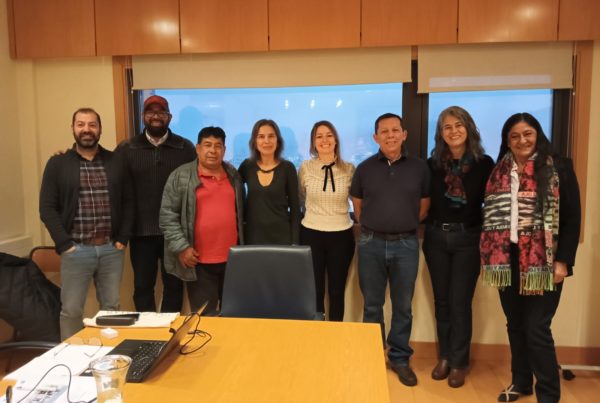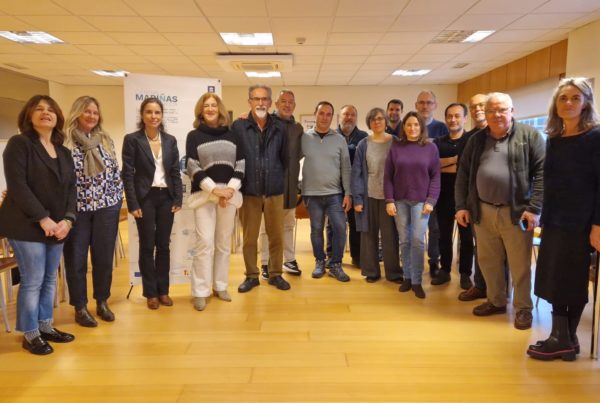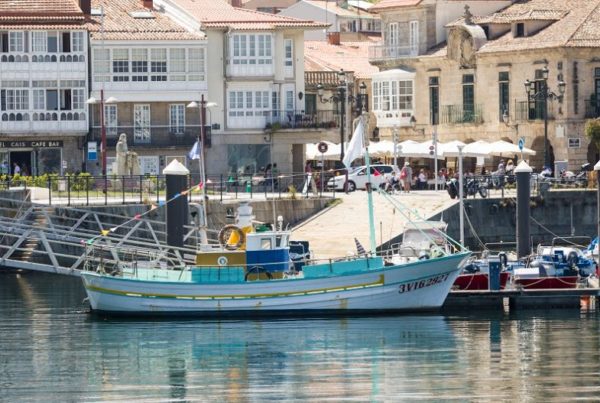Galicia leads marine research with new advances in marine sciences and the blue economy
- The Xunta analyzes with those responsible for the Marine Sciences Program the progress and results achieved in Galicia.
- Marine observation, sustainable aquaculture, and knowledge transfer: strategic pillars for the future of the Galician coast.
- Key results and innovative tools for sustainable management, resilience, and adaptation to climate change.
The team responsible for coordinating the Galicia Marine Sciences Program met this Tuesday at the headquarters of the Consellería do Mar with the conselleira, Marta Villaverde, to present first-hand the main results to be achieved and the impact that the actions carried out will have both on the different sectors linked to the sea, as well as on strengthening Galicia’s role as a leading territory in the field of marine research at the national and European level.
Among the most notable advances presented are the development of a strategy for ocean observation and monitoring, supported, among others, by marine information mapping tools such as FARO and the Big Data Platform, which integrates and processes large volumes of data with quality control and unified access. These resources consolidate the path towards data-based governance and strengthen the sustainability of the Galician coast.
Within the framework of this strategy, Galicia now has new tools to optimize the management of the marine environment and its resources, improve the response to environmental threats, and anticipate the impacts of climate change. Among them are the integrated platform for the automated collection of biogeochemical data installed on the Duques de Alba at the Rande bridge in the Vigo estuary, which complements the network of ocean-meteorological stations of the Coastal Observatory of the Xunta de Galicia; systems for detecting risks and pollution episodes; tools for monitoring the traceability, quality, and safety of marine products; predictive models; early warning systems; and multiscale simulators that lay the foundations for the marine digital twin of Galicia.
In the field of sustainable aquaculture, the Program has advanced in the creation of genomic tools to improve resistance to diseases and the management of toxins in species such as mussels, clams, and oysters, through multispecies chips, selection protocols, and genetic analysis software already applicable in commercial hatcheries. Cryopreservation and larval rearing have also been optimized. Advanced molecular techniques for the detection and monitoring of larvae in the natural environment have also been incorporated, favoring more efficient management of shellfish resources. In the field of integrated multitrophic aquaculture (IMTA), offshore and recirculation (RAS) systems are validated, based on the integrated cultivation of fish, macroalgae, and beneficial bacteria, optimizing the use of nutrients and strengthening productive resilience.
The Program incorporates the field of social sciences to improve communication, the transfer of results, and the evaluation of the socioeconomic impact of research. In this area, the construction of the Ocean Health Index (OHI) model stands out, which allows the identification of vulnerabilities and use conflicts, as well as the carrying out of an Input-Output analysis and a Social Accounting Matrix, tools that facilitate the evaluation of the economic interdependence of fishing and the joint integration of socioeconomic and environmental effects. In the area of transfer, the meeting presented the conclusions of the cross-analysis of the Program’s potentially transferable knowledge units, which total 184, grouped in a catalog of results — including reports, software, tools, patents, and others — and which constitute key contributions of the Program to contribute to the construction of an innovative, resilient, knowledge-based blue economy.
At the meeting, the conselleira was invited to the event “From Advances to Impact: II Meeting with the Marine Sectors,” which will take place on October 24, 2025, continuing the first meeting held on December 13, 2024, which was attended by 239 people, of whom 33% belonged to entities external to the Program.
The meeting concluded by informing the conselleira that the final state-level meeting will be held on October 7, 8, and 9 in San Pedro de Pinatar (Murcia). This meeting will offer the Marine Sciences Program a new opportunity to demonstrate its active coordination with the seven autonomous communities that make up the Complementary Plan ThinkInAzul, closing the annual cycle of joint monitoring and planning after a year of intense activity in periodic meetings and in the three working groups created in 2024.
More about the Marine Sciences Program
The Marine Sciences Program aims to improve the resilience and sustainable management of Galician marine ecosystems and resources, especially in the face of climate change; promote sustainability and innovation in the fishing and aquaculture sector; and strengthen knowledge transfer to the socioeconomic fabric linked to the sea.
It has a total budget of ten million euros, of which six come from the Recovery, Transformation and Resilience Plan through the State’s Next Generation funds, and the other four million are provided by the Xunta de Galicia through the European Maritime and Fisheries Fund (EMFF) and the new European Maritime, Fisheries and Aquaculture Fund (EMFAF). Its scientific network is made up of nearly four hundred researchers who integrate the three Galician universities — A Coruña, Santiago de Compostela, and Vigo —, four centers dependent on the CSIC, and six community centers, among which are the Galicia Supercomputing Center (CESGA), the Marine Technological Center–Cetmar Foundation, the Marine Research Center (CIMA), the Galician Institute for Aquaculture Training (Igafa), the Technological Institute for the Control of the Marine Environment of Galicia (Intecmar), and MeteoGalicia.






